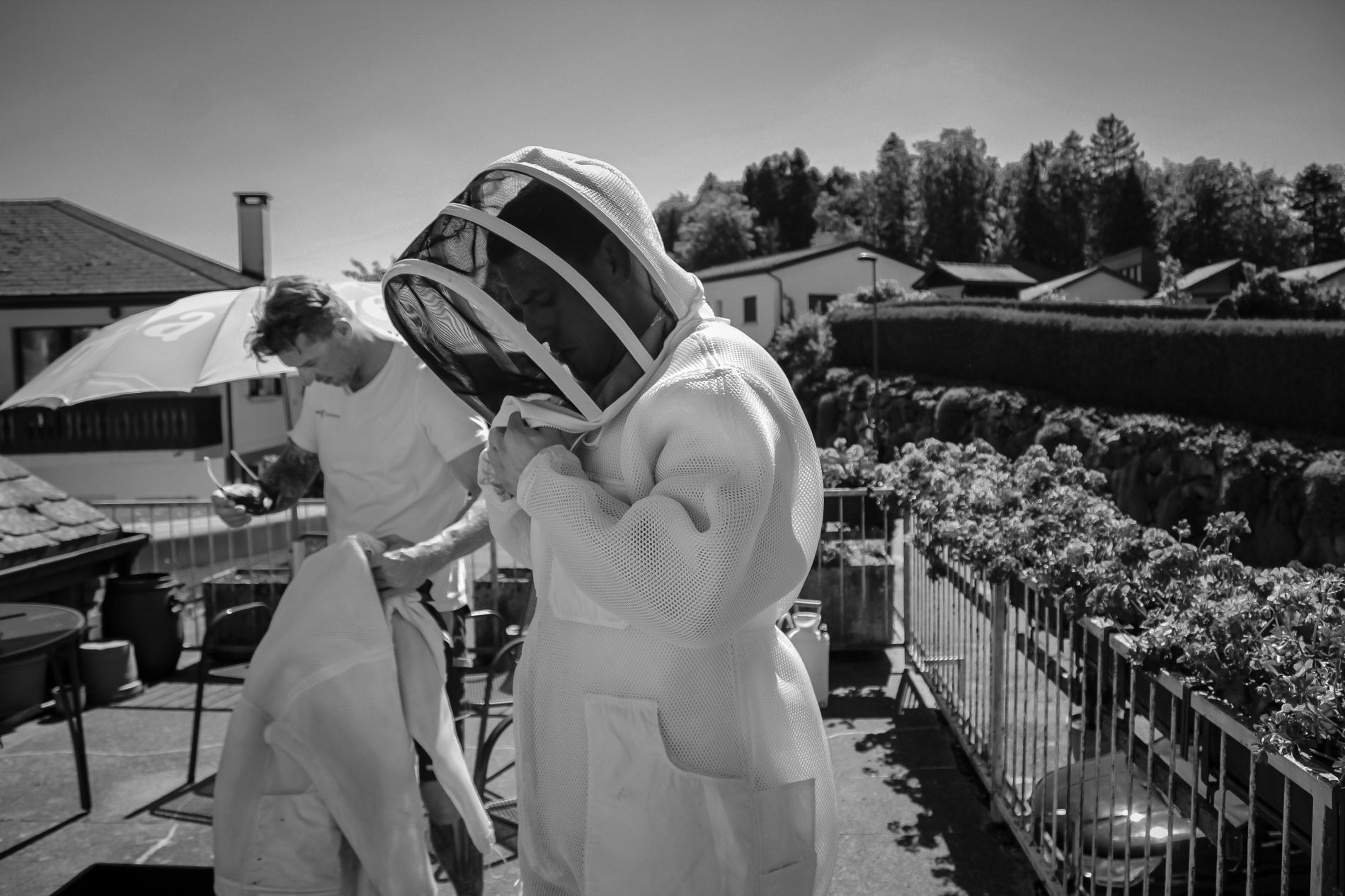
Fighting Asian hornets in Innerthal
Have you discovered an Asian hornet's nest? We'll be on site quickly! Call now - Daily Mon-Sun 07:00-21:30. Contact us now: 058 510 22 54
Having the Asian hornet's nest removed
The hornet species Vespa velutina, originating in South-East Asia, has intrusively migrated to Switzerland and the broader subcontinent. Despite not being aggressive towards humans, it is infamous for preying on honey bees, stirring fear among beekeepers. A small group of these hornets can attack and eliminate a colony of bees within a matter of hours. If you have discovered a hornet's nest on your house, patio, shed, or in your blind box, contact our experts for hornet nest removal in Innerthal!
Use the uncomplicated telephone service of the Hornet experts in Innerthal and simply inform us at 058 510 22 54, we will be on site quickly so that you and everyone in your area feel completely safe again.
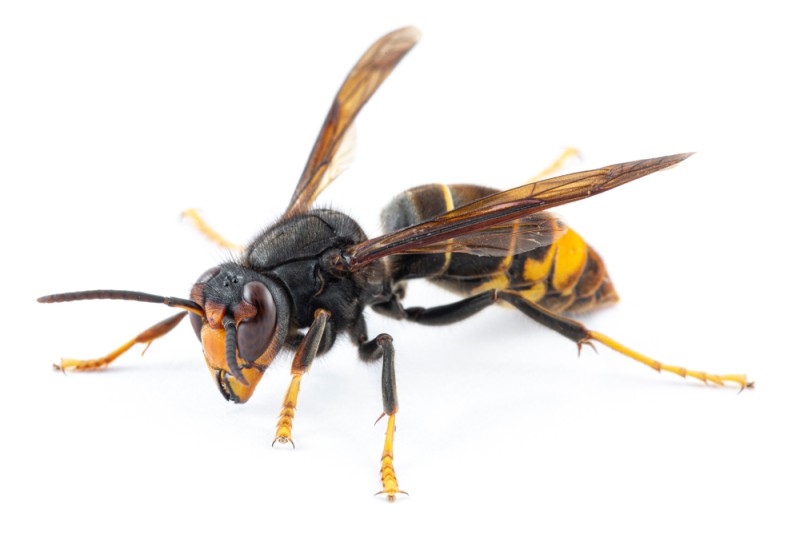

Appearance of the Asian hornet
Here are some characteristics that distinguish the Asian hornet:
1. Size: The queen can reach a length of about 3 cm, while the workers are slightly smaller and measure about 2.5 cm.
2. Color: The Asian hornet has a dark body that is almost black, with a yellow stripe at the back of the abdomen. Its face is orange-yellow.
3. Wings: The wings are dark and almost smoky gray.
4. Legs: The hornet has yellow tips on its legs, which is a striking distinguishing feature when it flies.
5. Nest: The Asian hornet's nest is often high in the trees, but it can also be found underground or in tall structures such as chimneys. It has an oval shape and is made of chewed wood, which gives the hornet a papery texture.
It is important to distinguish the Asian hornet from the European hornet (Vespa crabro), which is more harmless and a natural part of the European fauna. If you suspect you have found an Asian hornet nest near you in Innerthal, you should report this to the local authorities, or using our reporting form, as they can spread quickly and be harmful to bees and other insects. To avoid being attacked by the flying inhabitants, you should hire a professional pest controller such as the Hornet Experts Innerthal. We can identify the nest beyond doubt and take further steps to remove the Asian hornets professionally.
News about the Asian hornet in Innerthal
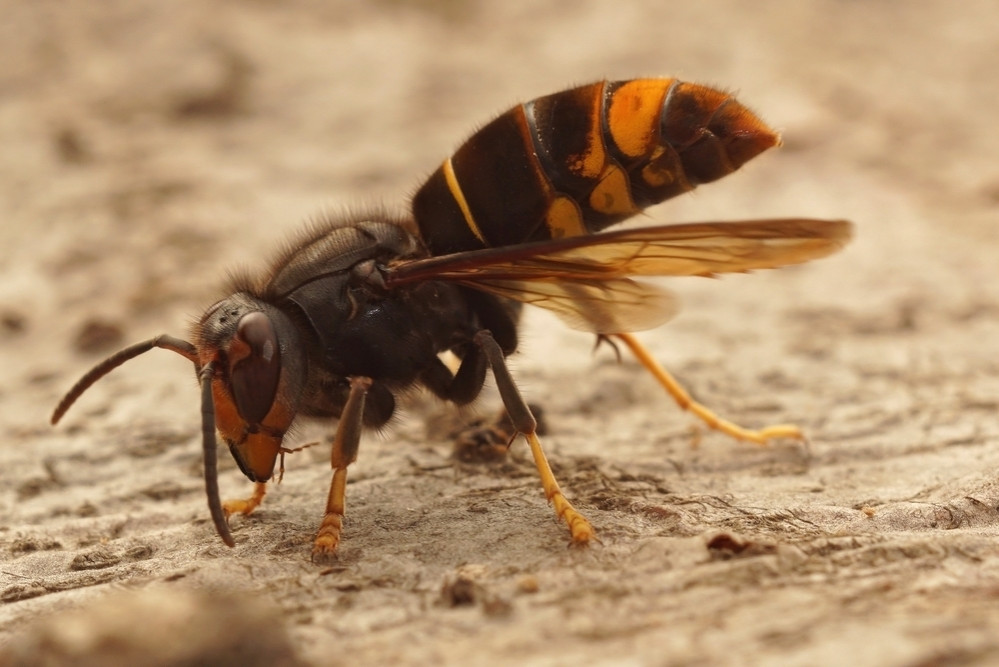
02.12.2025 Western Switzerland: Killer hornet eats bees
The territory of the Asian killer hornet has expanded considerably this year, with a notable increase reported in western Switzerland. This invasive species poses a significant threat to native bee populations, as bees make up the majority of its diet. The potential consequences are serious. Moreover, the hornet represents a danger to individuals with allergies to its venom.
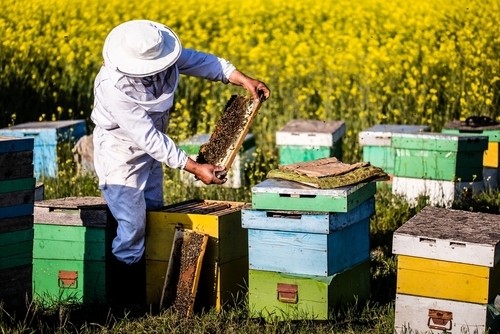
25.11.2025 Serious concerns about the bee population!
Asian hornets are inflicting significant harm on beehives across multiple parts of Europe, as reported by local beekeepers. Even a small number of hornets can destroy an entire bee colony within hours. This sharp decline in pollinators could have serious consequences for pollination, local ecosystems, and agricultural productivity.
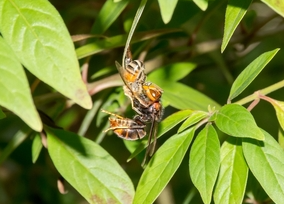
18.11.2025 Asian hornet doesn't just eat bees!
The danger it presents to insects is substantial!
The Asian hornet feeds largely on honeybees—up to 85 percent of its diet—alongside beetles and flies. This high level of predation not only poses difficulties for fruit growers but also further threatens already vulnerable bee populations.
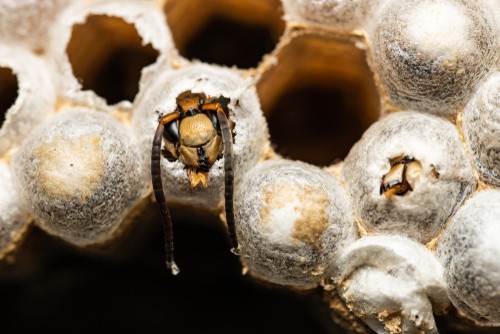
11.11.2025 How did the Asian hornet get to Europe?
The Asian hornet likely arrived in Europe unintentionally and has quickly expanded throughout France and nearby countries. Its adaptability to different environments and the absence of natural predators have contributed to its rapid spread. A single nest can generate several hundred new queens in one breeding season.
Asian Hornet Reporting Form
Please fill out all required fields and submit the form.
Help us!
If you discover an Asian hornet or a nest of this invasive species in Innerthal, it is of the utmost importance that you report it immediately. The Asian hornet is not only dangerous to humans, but also poses a serious threat to native bee populations and the ecological balance in Switzerland.
Why is it important to report the find?
In regions where the Asian hornet successfully colonizes, it exerts a significant influence on native insects, particularly honey bees. With its predatory behavior towards bees, this hornet species plays a key role in the decline of pollinator populations, consequently affecting the local flora and agricultural productivity. By reporting sightings, experts can react quickly, remove the hornets or their nests and thus prevent the spread of this invasive species.
Notification form for sightings
We greatly value your assistance in our collective mission to regulate the overpopulation of the Asian hornet in Switzerland and safeguard our native insect populations. To aid in these efforts, we strongly urge you to report any suspicions or sightings using our designated reporting form. Your vigilance will enable us to promptly initiate interventions and minimize the potential impact of this dangerous species on our delicate ecosystems.
Your contribution is crucial in the fight against the Asian hornet in Innerthal. Together we can protect nature and maintain the balance of our ecosystems;
Thank you for your vigilant attention and your commitment to protecting our environment.
How dangerous is the Asian hornet?
The Asian hornet (Vespa velutina) is a predatory insect that originated in Asia and has spread in recent years to various parts of Europe, including France and now also Switzerland and in Innerthal. Although it poses a threat to honey bees and native biodiversity, it is generally no more dangerous to humans than other wasp species. Nevertheless, there are some aspects to be aware of:
1. Threat to honey bees: The Asian hornet preys on honey bees, threatening native bee populations. A decline in bees can have a negative impact on pollination and thus on local flora and agricultural production.
2. Stings: As with other wasp and hornet species, the stings of the Asian hornet can also be painful. For most people, the stings are unpleasant but not dangerous. However, people who are allergic to wasp or hornet stings can suffer a severe allergic reaction, which in the worst case can lead to anaphylactic shock.
3. Aggressiveness: Although the Asian hornet is not necessarily more aggressive towards humans than other wasp species, it can become aggressive if it feels threatened, especially near its nest.
4. Ecological effects: Apart from the direct effects on honey bees, the spread of the Asian hornet can also disturb the ecological balance by affecting the populations of other insects.
It is crucial to recognize the disparity between the Asian hornet and the Asian giant hornet (*Vespa mandarinia*) to avoid any confusion. The giant hornet, often referred to as the "killer hornet," is considerably larger and carries a stronger venom, which makes it potentially more dangerous to humans compared to the Asian hornet.
If you have discovered a nest, call us immediately: 058 510 22 54
Our hornet professionals in Innerthal are certified by the VSS.
Frequently Asked Questions About Asian Hornets in Innerthal
The Asian hornet's stings have the potential to inflict serious harm, proving it to be an extremely dangerous insect species that exceeds the threat posed by most other hornets.
Possessing an impressive length of approximately 3 cm, the Asian hornet is a notable stinging insect. Its slender, ebony physique is adorned with vivid orange, yellow, and black stripes.
Generally displaying reticence and a mild temperament, the Asian hornet can swiftly adopt a confrontational and energetic stance when facing threats or being confined. It actively defends itself with heightened aggression.
The venom of the Asian hornet is highly potent and poisonous to humans. Its bite can inflict notable pain and has the potential to cause allergic reactions.
The Asian hornet is considered dangerous due to its venomous sting, distinguishing it from other wasps. Its sting inflicts greater pain and can trigger allergic responses.
To report an Asian hornet, promptly notify a regional wild bee protection officer or contact the relevant department within the Ministry of Agriculture for further guidance.
Taking the initiative to report Asian hornets is of utmost importance in mitigating attacks and curbing their proliferation. These insects possess a territorial and aggressive nature, underscoring the need for timely reporting.
Effectively dealing with Asian hornets in Switzerland entails professional hornet control services. To initiate this, it is advisable to promptly contact a reputed pest control service.
Although the Asian hornet is not protected, it is essential to conduct vigilant monitoring to deter their potential expansion and minimize their impact.
As the Asian hornet enters hibernation, it adopts one of two approaches: either forming colonies or retreating alone into the nooks of walls, buildings, garden sheds, incidental structures, or tree hollows.
Would you like more information about Asian hornets? Then take a look at our FAQ's about Asian hornets.
Private inquiry form
For an uncomplicated request to remove an Asian hornet's nest, please use our contact form for private individuals.
Real estate inquiry form
Use our property management order form to request the removal of an Asian hornet's nest.




_6.jpeg)
_6.jpeg)
_5.jpeg)
_5.jpeg)